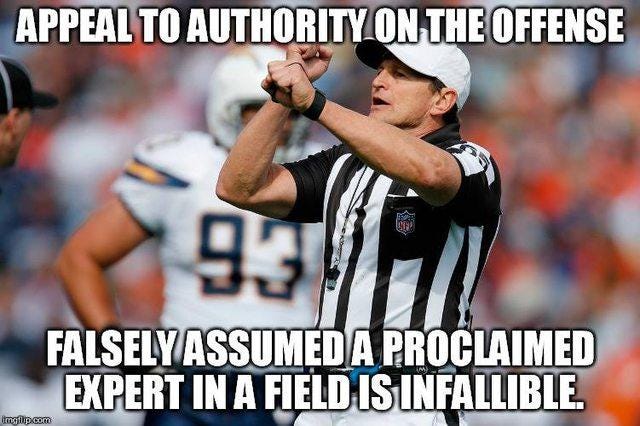The Infamous Hunter Biden Laptop Letter
Trump pulls security clearances from those who signed

Fifty-one former senior intelligence officers in 2020 signed an open letter addressing a story in the New York Post about documents that purported to tie former president Joe Biden to his son Hunter’s business dealings. The Post, with the headline, “Biden Secret E-mails,” claimed that it received a copy of Hunter Biden’s laptop hard drive from Donald Trump’s personal lawyer Rudy Giuliani, who said he got it from a Mac shop owner in Delaware who also alerted the FBI.
Once back in the White House, Trump last week decided to revoke the security clearances of 51 former government officials, including 49 surviving signatories of the letter, such as James Clapper, the Director of National Intelligence under former President Barack Obama, and John Brennan and Leon Panetta, who were both Obama’s CIA directors.
It’s not clear how many of these individuals still maintain security clearances. If I remember correctly, most have left government service. If that’s the case, the Executive Order (EO) directing the withdrawal of the officers’ clearances may be just messaging to provide red meat to Trump’s base.
To be sure, the President has the right to revoke security clearances, although an EO signed by then-President Clinton in 1995 says that individuals determined to be ineligible for a clearance are to be provided a “comprehensive and detailed” explanation of the conclusion. (Click below to enlarge)
But I’m not an attorney, so I’m not going to discuss whether what President Trump did with this EO is legal or not legal.
The Letter.
What I do want to discuss is Russian information operations and the letter.
Note that the 51 signatories did not say they knew for sure that the letter was part of Russian disinformation. What they wrote was that “the arrival on the US political scene of emails purportedly belonging to Vice President Biden’s son Hunter, much of it related to his serving on the Board of the Ukrainian gas company Burisma, has all the classic earmarks of a Russian information operation.”
Were they 100 percent sure?
No. They wrote as much in the letter.
“If we are right, this is Russia trying to influence how Americans vote in this election, and we believe strongly that Americans need to be aware of this.”
“If we are right…” “our experience makes us deeply suspicious…”
These private citizens were voicing their views, based on their past experiences.
The letter was clearly an assessment, and as I’ve always taught, an assessment is not fact. That’s why the intelligence community has confidence levels to characterize how sure analysts are about the accuracy and veracity of their assessments.
An assessment is a hypothesis based on existing evidence from sources whose credibility is also characterized in an analytic product. The intelligence community has standards it must follow, and analysts must provide a source summary statement to describe the quality and credibility of the sources used in their assessment.
In other words, why do you believe your analysis to be true? What are some the alternatives you considered? What were the sources you used?
Although the open letter is hardly an intelligence product, the signatories made very clear the fact that the letter contained their opinions, based on their years of experience as intelligence professionals. They were honest about what they didn’t know, and those who read that letter should have immediately understood this fact.
The letter cited no sources. What it did was give reasons for the signatories’ assessment of this laptop story. They were well within their right to give their educated opinions on the matter.
Yes, there should have been additional examination done of the laptop, its origins, and its contents, and that’s part of the reason why I would not have signed this letter, regardless of whether I hated Trump or supported Biden or vice versa.
So what were these earmarks of Russian information operations?
The Indicators
The laptop and emails were consistent with Russian objectives - to sow discord and distrust.
The former officers also assessed that Moscow wanted Trump to win, so they “pulled out all the stops” to undermine Biden.
Putin is a former KGB agent. It’s not unrealistic to assess that the laptop was part of the Kremlin’s active measures.
The RAND Foundation in 2017 defined “information operations” as influence operations that include “the collection of tactical information about an adversary as well as the dissemination of propaganda in pursuit of a competitive advantage over an opponent.”
It’s not unreasonable to assess that the appearance of the laptop fit the mold, especially considering the timing (a couple of months before the 2020 election) and the subject (the son of Trump’s opponent).
Other suspicious details included the laptop itself. The customer who dropped it off for repair never returned to pay for its repair and never picked up the laptop or the hard drive on which its contents were stored. The shop owner repeatedly tried to contact the client, but to no avail.
Does anyone else find this sketchy? Someone drops off a computer with a bunch of incriminating information on it about a presidential candidate, as well as gross photos of the candidate’s son “for repair,” and never returns to pick up the laptop. How convenient.
And it’s not like the Russians didn’t engage in this type of indirect election interference in the past.
Project Lakhta, among other things, used forged documents and other deceptive materials to foment confusion and sow chaos in the United States, undermining confidence in our government infrastructure, our electoral process, and our candidates.
Russia has clearly been engaged in information warfare for years. Then-Russian Defense Minister Sergey Shoigu in 2017 admitted that Russia had expanded its efforts to build a cyber warfare army. “Information operations forces have been established that are expected to be a far more effective tool than all we used before for counter-propaganda purposes.”
The tool is also much cheaper than using conventional forces in warfare.
When I saw the story about the laptop in 2020, I will admit my first thought was also “Russian op,” given the timing, the target, the conspicuous appearance of this laptop for “repair,” it’s abandonment at the repair shop, and the Russians’ past “active measures.”
But stepping back, I’d have given the assessment about the story having all the earmarks of Russian information operation low-to-medium confidence, given the fact that the assessment was based on the professional experience of the signatories only.
Would I have signed the letter?
Nope.
Even if I’m no longer in the intelligence community, the letter was perceived to be politically motivated, and my signature on it would have been perceived the same way. As a former intelligence officer, my signature on that letter would have compromised my reputation.
The timing would have put my political neutrality in doubt.
The lack of actual evidence, despite my first knee-jerk reaction that this was a Russian op, would have undermined my credibility as someone who strives to be objective.
Rudy Giuliani said he got the hard drive from a Mac shop owner in Delaware who also alerted the FBI, and gave it to the Post. The chain of custody is not just murky here - it’s mud.
The language of the letter was clear: the signers did not know if the information on the laptop was genuine. They were basing their assessment on their previous experience and signing an appeal to authority.
Certainly more examination of the laptop and the information it contained was warranted, but time was short and the elections loomed large.
Regardless of whom I supported in the 2020 election, I would not have put my credibility in the crosshairs by signing this letter.
That said…
These private citizens had every right to speak out and give their opinion. This was NOT election interference. It was former government officials with some knowledge of the subject giving their view about an issue they felt was important for the American public to know and understand.
They had every right to speak without fear of reprisal, which is what the EO Trump signed directing that the security clearances of the signatories of the letter be revoked is. I note that the text of the EO specifically says that “the letter was sent to the CIA Prepublication Classification Review Board, the body typically assigned to formally evaluate the sensitive nature of documents prior to publication” before being issued. No classified intelligence was released, nothing illegal happened, and these people had every right to speak out—whether you agree with them or not.
So this EO is little more than retribution for the signatories giving their opinion—an opinion that President Trump didn’t like and with which he disagreed.







The interesting thing is that the Biden e-mails were not that revealing. The New York Post story's principal point of emphasis was an e-mail by Pozharskiy thanking Hunter Biden for the opportunity to meet with his father. Still, it contained no proof that the meeting ever took place (Joe Biden says there was no meeting, and none was on the official schedule).
In addition, of course, Rudy Giuliani, the guy who passed the Hunter Biden emails to the NYP, had just been on a fishing expedition in Kyiv where he had met with known FSB agents who passed him all kinds of made-up material on Biden/Burisma, hoping it would affect the 2020 election.
It didn't. The material was bogus and from tainted sources. The main source, Andriy Derkach, aka "Ukraine's Putin", fled to Moscow shortly thereafter. One of Rudy's helpers, Lev Parnas, later apologized to the Bidens for his role in faking up misinformation about Biden/Burisma. In addition, Aleksandr Smirnov was sentenced to six years in jail for falsely testifying to the FBI about the same Biden/Burisma bribery allegations. https://www.reuters.com/legal/ex-fbi-informant-who-fabricated-claims-about-bidens-sentenced-6-years-2025-01-08/
So, as usual, it's the Benghazi strategy, where MAGA partisans try to fake up "evidence" to prove evildoing by Democrats. Same old same old.